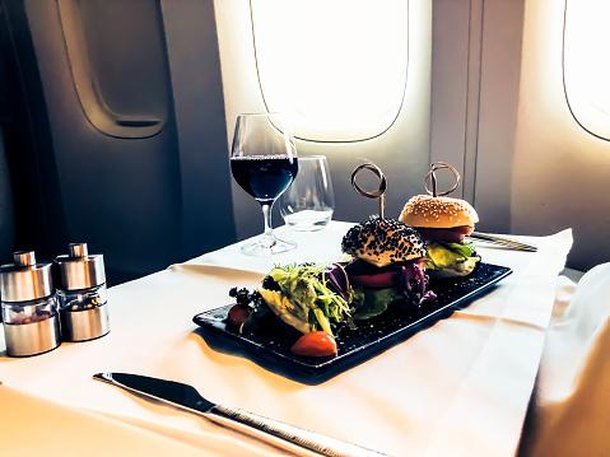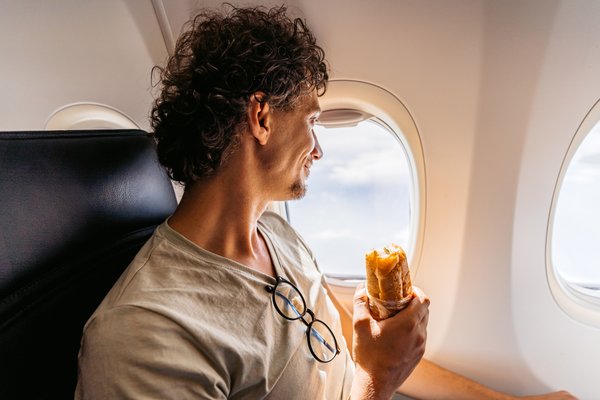You know when you get hungry mid-flight, but you quickly stop snacking when you remember Airplane food always tastes the sameRegardless of the list? Many people blame the airline chef, but it probably has nothing to do with the lack of flavor in the dishes served.
A study by the Fraunhofer Institute for Building Physics, based in Stuttgart, Germany, suggests this The perception of food and drink by the taste buds is different when we fly at an altitude of more than 10 km. Moreover, the flight takes place in a cabin in which the humidity of the recycled air is only 12%.
Under these conditions, the nasal passages become very dry, which leads to a decrease in the ability of the olfactory system. Since smell plays an essential role in taste, The taste perception of food served on board is affectedbecomes smoother.
The work, published in the past decade, suggests that the ability to taste sweet tastes decreases by 20% due to the dry air in an airplane, along with the low pressure. The intensity of salty flavors can be reduced by up to 30%.
noise and other factors
(Source: Getty Images)
Andrea Burdak-Freitag, an aroma chemist who co-authored the study, told the German institute’s website that food and drinks served on planes “taste like when you’ve caught a cold.” Another reason: aircraft noise.
High noise levels, such as that from an aircraft turbine, reaching 80 decibels in the cabin, are also present. Great influence on the perception of sweet and salty tastes. Thus, the enjoyment of food can be reduced when a person is exposed to excessive noise, equivalent to that of a vacuum cleaner.
It is also worth highlighting that flavors may be affected by the production process of dishes served during air travel. Preparation can begin hours in advance, on land, followed by packing, cooling and transportation to the place of shipment.
All of this can take hours, depending on where the menu is set up, and food needs to be reheated on board before serving. Combined with the factors shown by science, it is possible that the process contributes to the bland taste that many passengers complain about.
How do you mitigate the effects?

One way to reduce the effects of dryness, low pressure, and noise on flavor perception during air travel is to choose a different menu. One alternative is umami-rich foods, such as mushrooms, aged meats, and tomatoes, because they retain their flavor even in a cabin environment.
Dishes with foods with spicy, sour and bitter flavors also appear as an option, as they are also unaffected by the conditions on board.

“Hardcore beer fanatic. Falls down a lot. Professional coffee fan. Music ninja.”







More Stories
Empowering Women in Science: Conquering the World Through Exchange!
The three secrets of reaching 100 years old, according to science
Learn about the relationship between vision problems and dementia according to science